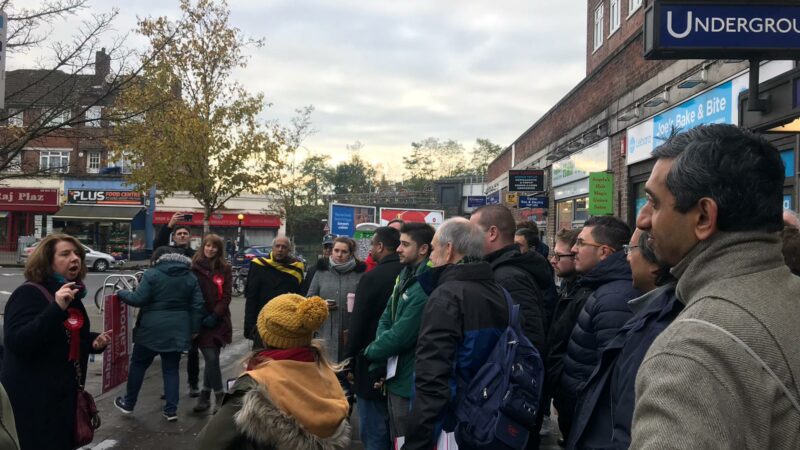
Labour conference in September passed a policy motion that was seen to criticise the actions of the Indian government in the Kashmiri conflict. It caused a backlash, with some Indian-heritage groups telling their communities to vote Tory. Ian Lavery, as party chair, subsequently issued a letter clarifying the party’s position: he described Kashmir as a bilateral issue for India and Pakistan to resolve, and confirmed that Labour is opposed to external interference.
Harrow East is a a key target seat for Labour in this general election campaign. Tory incumbent Bob Blackman currently holds the seat with a majority of just 1,757 votes, so this is one Labour hopes to win next month. On paper, that looks entirely achievable. But, according to the 2011 census, 26.4% of the Harrow population are British Indians, which means a potential rift between Labour and the Indian community could prove decisive. And Labour’s position on the Kashmiri conflict is coming up on the doorstep.
Up to 40 canvassers gathered to campaign for Labour candidate Pamela Fitzpatrick on Saturday. As we knocked on doors, the response was generally positive. The vast majority told us they’d be voting Labour, with very few expressing support for the Tories. The normal issues that you might expect came up – crime and policing, cost of rent and housing, other local issues. And the issue of Kashmir, too.
In our group of six activists, it came up four times on the doorstep. On one of those occasions, I spoke to an elderly Indian man who told me he felt that the conflict was “not any of Labour’s business”. He had previously voted Labour, yet wasn’t able to tell me he’d be doing the same again. Another canvasser reported that one resident thought Labour had become “anti-Indian”.
One campaigner managed to talk a person round when they brought up Kashmir. The Labour member told me he turned the conversation to national issues, like education, and spoke of Labour providing a better future for his own son, who was handily out campaigning with us. Winning in Harrow East will likely rely on doing just that: focusing on Labour’s domestic platform to talk about everyday problems faced by people in the area.
The takeaway from the small snapshot I saw was a positive one. It seems that concentrating on Labour’s national policy offers worked, and the Labour vote was holding up well. But Labour is encountering an extra challenge in this marginal seat, and – while Indian-heritage communities cannot be viewed as monolithic on the Kashmir issue – the same can probably be said of other key seats across the country.




More from LabourList
Turning the page? Labour’s recovery in the polls show a path to 2029 victory
Restoration announce recommendations for NEC candidates
‘Factionalism at the top is weakening Labour – and handing a gift to Reform’